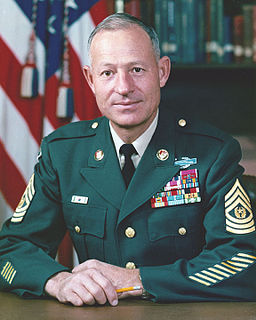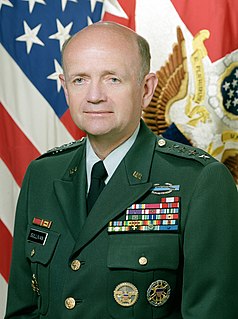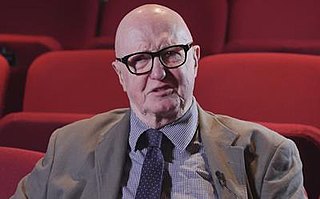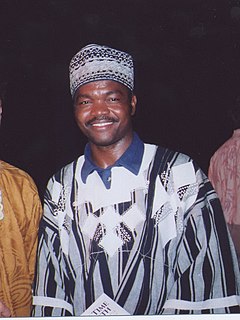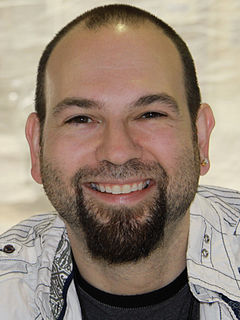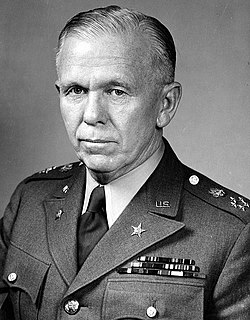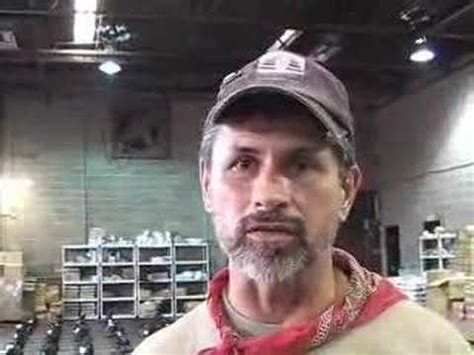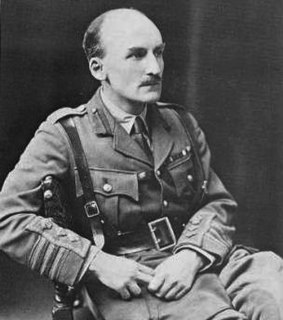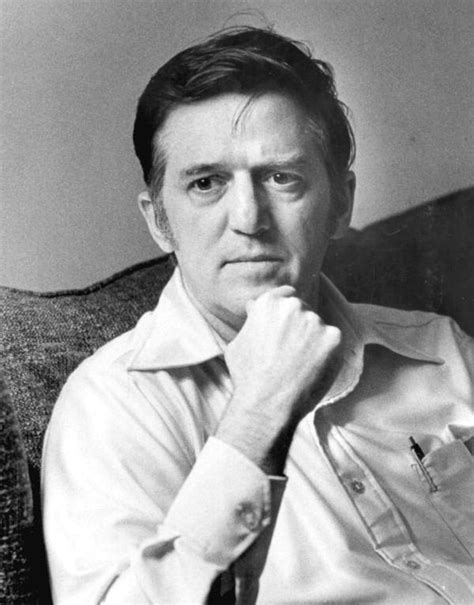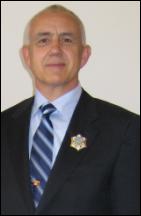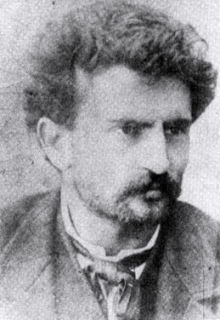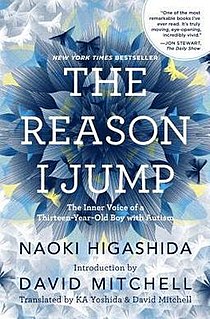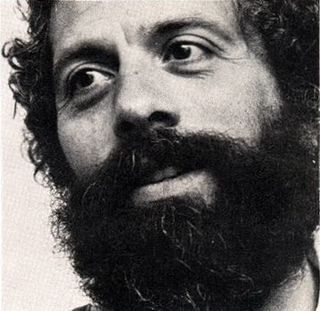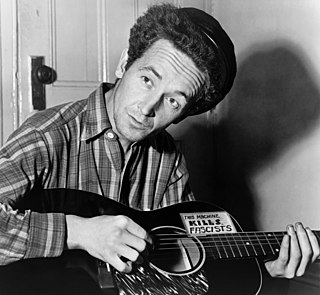Top 1079 My Soldier Quotes & Sayings - Page 17
Explore popular My Soldier quotes.
Last updated on April 20, 2025.
My name is Mankiller, and in the old Cherokee Nation, when we lived here in the Southeast, we lived in semi-autonomous villages, and there was someone who watched over the village, who had the title of mankiller. And I'm not sure what you could equate that to, but it was sort of like a soldier or someone who was responsible for the security of the village, and so anyway this one fellow liked the title mankiller so well that he kept it as his name, and that's who we trace our ancestry back to.
Be not too slow in the breaking of a sinful custom; a quick, courageous resolution is better than a gradual deliberation; in such a combat he is the bravest soldier that lays about him without fear or wit. Wit pleads, fear disheartens; he that would kill Hydra had better strike off one neck than five heads: fell the tree, and the branches are soon cut off.
The history of those who shed those other tears, the history of those anonymous millions, is what Terkel wants readers and listeners to come away with. What's it like to be that goofy little soldier, scared stiff, with his bayonet aimed at Christ? What's it like to have been a woman in a defense-plant job during World War II? What's it like to be a kid at the front lines? It's all funny and tragic at the same time.
A code of ethics cannot be developed overnight by edict or official pronouncement. It is developed by years of practice and performance of duty according to high ethical standards. It must be self-policing. Without such a code, a professional soldier or a group soon loses identity and effectiveness. Once we know our job, have a genuine code of ethics, and maintain unquestioned personal integrity, we have met the first and most demanding challenge of leadership.
See that unfortunate soldier who is falling hurt to death ("tombe blessé à...", Fr.) on the battlefield; he learns that his folks have vanquished and dies happy. He detached himself from himself (s'est détacher de lui-même", Fr.), has identified himself with something greater and more lasting than himself; his homeland ("patrie", Fr.); thus, while dying as an individual, he has the certainty to survive in a larger existence.
I hated that the soldier doll had my name. I mean, please. I didn't play with him much. He was another Christmas present from my clueless grandparents. One time when they were visiting, my grandpa asked me if G.I. Joe had been in any wars lately. I said, "No, but he and Ken got married last week." Every Christmas since then, my grandparents have sent me a check.
Climate Change is a national security issue. We found that climate instability will lead to instability in geopolitics and impact American military operations around the world. People are saying they want to be perfectly convinced about climate science projections. But speaking as a soldier, we never have 100 percent certainty. If you wait until you have 100 percent certainty, something bad is going to happen on the battlefield.
As a soldier, I've served with the most brave people in an institution that's built on integrity, honor, and duty. This is why I'm working very hard to support Senator Bernie Sanders - not only to get through the Democratic primary, but also to win the presidency. He is the only candidate on both sides who understands the cost of war, who has that foresight to keep our country safe, and who will make sure that our military power is not being when and where it shouldn't be.
A ghostly side note Soldier boy Miller played a Lucifer-like character in the final two episodes of Joan of Arcadia. Coincidence I do find it strangely poetic, ... that a character who shows up on a show about God to play something kind of satanic winds up in the very last two episodes of that show, and then appears in the show that replaces that show on its exact time and night the following season.
The soldier is convinced that a certain indefinitely extendable time period is accorded him before he is killed, the burglar before he is caught, men in general, before they must die. That is the amulet which preserves individuals — and sometimes populations — not from danger, but from the fear of danger, in reality from the belief in danger, which in some cases allows them to brave it without being brave. Such a confidence, just as unfounded, supports the lover who counts on a reconciliation, a letter.
Tatiana...you and I had only one moment..." said Alexander. "A single moment in time, in your time and mine...one instant, when another life could have still been possible." He kissed her lips. "Do you know what I'm talking about?" When Tatiana looked up from her ice cream, she saw a soldier staring at her from across the street. "I know that moment," whispered Tatiana.
I do not say that all lawyers are bad, but I do maintain that the general tendency is bad: standing up in a court for whichever side has paid you, affecting warmth and conviction, and doing everything you can to win the case, whatever your private opinion may be, will soon dull any fine sense of honour. The mercenary soldier is not a valued creature, but at least he risks his life, whereas these men merely risk their next fee.
I had huge fun with Chris Evans, as Captain America, because super-soldier though he may be, he's still a man, up against a God who in his own mind is infinitely superior. Then, in the ring with The Hulk, we've got this silver tongued, lightening quick mind up against the embodiment of rage..Loki has this mercurial, transformative ability, not just physically but intellectually, so not all the fights are purely physical. Mind games? Maybe.
War means fighting. The business of the soldier is to fight. Armies are not called out to dig trenches, to throw up breastworks, to live in camps, but to find the enemy and strike him; to invade his country, and do him all possible damage in the shortest possible time. This will involve great destruction of life and property while it lasts; but such a war will of necessity be of brief continuance, and so would be an economy of life and property in the end.
I have neither the scholar's melancholy, which is emulation; nor the musician's, which is fantastical; nor the courtier's, which is proud; not the soldier's which is ambitious; nor the lawyer's, which is politic; nor the lady's, which is nice; nor the lover's, which is all these: but it is a melancholy of mine own, compounded of many simples, extracted from many objects, and indeed the sundry contemplation of my travels, which, by often rumination, wraps me in a most humorous sadness.
I am often asked why men don't get as worked up as they might about women - particularly poor women - having to use their bodies as prostitutes. Because most men unconsciously experience themselves as prostitutes every day - the miner, the firefighter, the construction worker, the logger, the soldier, the meatpacker - these men are prostitutes in the direct sense: they sacrifice their bodies for money and for their families.
In "The Myth of Sisyphus", his most important non-fiction work, Albert Camus suggested that if we believed what most people claim to be the purpose of life, we would feel compelled to commit suicide. If, however, we accept that life has no purpose we would be inclined to soldier on in a cussed, stoical manner like Sisyphus, endlessly pushing his rock up a hill only to see it roll down again.
I get slightly irritated by people who say they're natural rebels because it just means that they're going to be against whatever anybody does, which is almost like saying you might as well leave it as it is. I'm naturally quite conformist, really. If I go to a country and they say, "You've got to drive on the right," I'm not going to drive on the left to show that I'm different. I'm able to stick to the law. I'm not a soldier for anything, either. I'm only a singer and I don't think it makes a difference what we sing.
I see too many people who jump into spirituality as a shelter to hide from reality. It doesn't work that way. The way it works is for the spirit behind you to follow you wherever you go, like a loyal soldier, and show you how to face up to adversity. If you can't face adversity, you will get locked into a new age perception that everything is fine when it isn't. That makes you vulnerable to being exploited by the person who comes along and says, "I am a psychic. I have studied with this guy or that guy, and I know what you should do".
Here’s the thing about baseball-it’s not the individual sport I thought it was. Turns out I was wrong about that. Yeah, the batter is a lone man against the world. He stands in the batter’s box like a soldier and it’s up to him-and him alone-what happens next. But here’s the thing I didn’t understand until I was forced to, until recently: In order to hit a home run… Someone else has to pitch the ball.
But why must everything have a practical application? I'd been such a diligent soldier for years - working, producing, never missing a deadline, taking care of my loved ones, my gums and my credit record, voting, etc. Is this lifetime supposed to be only about duty? In this dark period of loss, did I need any justification for learning Italian other than that it was the only thing I could imagine bringing me any pleasure right now?
I have in this War a burning private grudge — which would probably make me a better soldier at 49 than I was at 22: against that ruddy little ignoramus Adolf Hitler (for the odd thing about demonic inspiration and impetus is that it in no way enhances the purely intellectual stature: it chiefly affects the mere will). Ruining, perverting, misapplying, and making for ever accursed, that noble northern spirit, a supreme contribution to Europe, which I have ever loved, and tried to present in its true light.
I knew that this was something that was going to be an intense experience, just from the way I typically approach my work. I did not take the fact that I was going to portray a soldier lightly. It was so very important to me that I came across as believable and honest and truthful. I wanted to be able to convey the psychology behind the choice of leaving home for an extended period of time, knowing that you may never come back while still being a devoted parent.
He was a foe without hate; a friend without treachery; a soldier without cruelty; a victor without oppression, and a victim without murmuring. He was a public officer without vices; a private citizen without wrong; a neighbor without reproach; a Christian without hypocrisy, and a man without guile. He was a Caesar, without his ambition; Frederick, without his tyranny; Napoleon, without his selfishness, and Washington, without his reward.
We build character in order for us to withstand the rigors of combat and resist the temptations to compromise our principles in peacetime. We must build character in peacetime because there is no time in war. Character is the most important quality you can find in any person, but especially in a soldier. It is the foundation that will get anybody through anything he may encounter. Reputation is what people think you are; character is what you are- that is the staying power.
Man is full of desires: he loves only those who can satisfy them all. "This man is a good mathematician," someone will say. But I have no concern for mathematics; he would take me for a proposition. "That one is a good soldier." He would take me for a besieged town. I need, that is to say, a decent man who can accommodate himself to all my desires in a general sort of way.
We are born into this time and must bravely follow the path to the destined end. There is no other way. Our duty is to hold on to the lost position, without hope, without rescue, like that Roman soldier whose bones were found in front of a door in Pompeii, who, during the eruption of Vesuvius, died at his post because they forgot to relieve him. That is greatness. That is what it means to be a thoroughbred. The honorable end is the one thing that can not be taken from a man.
How many victims must that be? Slaughtered in vain across the land, And how many strugles must that be? Before we choose to live the profits plan Everybody sing- Every day create your History, Every path you take you're leaving your legacy Every soldier dies in his glory Every legend tells of conquest and liberty.
There has been considerable comment over the awarding of the Nobel Peace Prize to a soldier. I am afraid this does not seem as remarkable to me as it quite evidently appears to others. I know a great deal of the horrors and tragedies of war. ... The cost of war in human lives is constantly spread before me, written neatly in many ledgers whose columns are gravestones. I am deeply moved to find some means or method of avoiding another calamity of war.
Democrat flaks jump on this like ducks on a June-bug, and in the process themselves reproduce the sick militarism of this culture that automatically valorizes anyone who wears a uniform. How dare you insult a soldier! Like its some sacred calling instead of an imperial employment program steeped in the culture of machismo and misogyny.(And you can gasp as theatrically as you want I spent more than two decades wearing a uniform that is exactly what it is.)
In the middle of the cavernous cargo hold was a simple, aluminum coffin with a small American flag draped over it. We were bringing another American soldier, just killed, home to his family and final resting place. The starkness of his coffin in the center of the hold, the silence except for the din of the engines, was a real time cold reminder of the consequences of decisions for which we Senators share responsibility.
His [Elijah] heart was beginning to give signs of alarm; he was enjoying being at this woman's side. Love could be a more frightening experience than standing before Ahab's soldier with an arrow aimed at his heart; if the arrow had struck him, he would be dead -and the rest was up to God. But if love struck him, he alone would have to take responsibility for the consequences.
Discipline is no longer literal obedience but intelligent obedience, for discipline aims at obedience coupled with activity of will. Once discipline weakens and vanishes, as it does towards the latter stages of the fire fight, and the crowd instinct possesses the soldier, then will he, if training has formed those necessary mental reflexes, surrender himself to the will of his leader; this is where leadership supplants discipline without destroying it.
People try so hard to believe in leaders now, pitifully hard. But we no sooner get a popular reformer or politician or soldier or writer or philosopher -- a Roosevelt, a Tolstoi, a Wood, a Shaw, a Nietzsche, than the cross-currents of criticism wash him away. My Lord, no man can stand prominence these days. It's the surest path to obscurity. People get sick of hearing the same name over and over.
I've been a soldier all my life. I've fought from the ranks on up, you know my service. But sir, I must tell you now, I believe this attack will fail. No 15,000 men ever made could take that ridge. It's a distance of more than a mile, over open ground. When the men come out of the trees, they will be under fire from Yankee artillery from all over the field. And those are Hancock's boys! And now, they have the stone wall like we did at Fredericksburg.
It takes a disciplined imagination to acknowledge that the less personal savageries of bombs, missiles, artillery and heavy weapons are, to those blown to smithereens, also barbaric. The main horror of what the coalition is doing is not a matter of the occasional soldier who, in the heat of battle, commits a war crime, but the steady destruction rained on cities, villages, the Iraqi people. This violence is wreaked calmly, from a distance, within the rules of engagement. The war itself is the American war crime.
There is the guilt all soldiers feel for having broken the taboo against killing, a guilt as old as war itself. Add to this the soldier's sense of shame for having fought in actions that resulted, indirectly or directly, in the deaths of civilians. Then pile on top of that an attitude of social opprobrium, an attitude that made the fighting man feel personally morally responsible for the war, and you get your proverbial walking time bomb.
Have you guys been playing in toxic waste again?" Fang asked severely, putting his hands on his hips. Nudge giggled. "No." "Been bitten by a radioactive spider?" Fang went on. "Struck by lightning? Drink a super-soldier serum?" "No, no, no," said Iggy. He started reaching for things around the table, and his hand landed on Total. "You're black." "I prefer canine-American." said Total. "When's that pie coming? I'm starving.
He picked up the wrench and broke the guy’s wrist with it, one, and then the other wrist, two, and turned back and did the same to the guy who had held the hammer, three, four. The two men were somebody’s weapons, consciously deployed, and no soldier left an enemy’s abandoned ordnance on the field in working order. The doctor’s wife was watching from the cabin door, all kinds of terror in her face. "What?" Reacher asked her.
Satan's time of tempting is usually after an ordinance; and the reason is, because then he thinks he shall find us most secure. When we have been at solemn duties, we are apt to think all is done, and we grow remiss, and leave off that zeal and strictness as before; just as a soldier, who after a battle leaves off his armour, not once dreaming, of an enemy. Satan watches his time, and when we least suspect, then he throws in a temptation.
A large body of people, sufficient to make a nation, have come to the conclusion that they will have a government of a certain form. Who denies them the right? Standing with the principles of '76 behind us, who can deny them the right? ... I maintain on the principles of '76 that Abraham Lincoln has no right to a soldier in Fort Sumter. ... You can never make such a war popular. ... The North never will endorse such a war.
A man can be a hero if he is a scientist, or a soldier, or a drug addict, or a disc jockey, or a crummy mediocre politician. A man can be a hero because he suffers and despairs; or because he thinks logically and analytically; or because he is "sensitive"; or because he is cruel. Wealth establishes a man as a hero, and so does poverty. Virtually any circumstance in a man's life will make him a hero to some group of people and has a mythic rendering in the culture - in literature, art, theater, or the daily newspapers.
I don't miss anything ever. Because to me, missing something is like going backward a little bit. I don't miss being in a punk band. For me, 'SNL' is like... this is gonna sound overly dramatic, but... the way I am, it feels like I'm a soldier, so it was like, 'What do you want me to do? Put me anywhere. Do you want me to do these sketches? Great.'
The Mongols consumed a steady diet of meat, milk, yogurt, and other dairy products, and they fought men who lived on gruel made from various grains. The grain diet of the peasant warriors stunted their bones, rotted their teeth, and left them weak and prone to disease. In contrast, the poorest Mongol soldier ate mostly protein, thereby giving him strong teeth and bones.
If the artist does not fling himself, without reflecting, into his work, as Curtis flung himself into the yawning gulf, as the soldier flings himself into the enemy's trenches, and if, once in this crater, he does not work like a miner on whom the walls of his gallery have fallen in; if he contemplates difficulties instead of overcoming them one by one ... he is simply looking on at the suicide of his own talent.
The basic function of the government everywhere in all times, whatever title it adopts and whatever its origin and organisation may be, is always that of oppressing and exploiting the masses, of defending the oppressors and the exploiters: and it's principal, characteristic and indispensable instruments are the police agent and the tax-collector, the soldier and the gaoler - to whom must be invariably added the trader in lies, be he priest of schoolmaster, remunerated or protected by the government to enslave minds and make them docilely accept the yoke.
Mitchell Sanders was right. For the common soldier, at least, war has the feel-the spiritual texture-of a great ghostly fog, thick and permanent. There is no clarity. Everything swirls. The old rules are no longer binding, the old truths no longer true. Right spills over into wrong. Order blends into chaos, love into hate, ugliness into beauty, law into anarchy, civility into savagery. The vapors suck you in. You can't tell where you are, or why you're there, and the only certainty is overwhelming ambiguity.
The result of the revolution in Germany has been to establish a democracy in the best sense of the word. We are steering towards an order of things guaranteeing a process of a natural and reasonable selection in the domain of political leadership, thanks to which that leadership will be entrusted to the most competent, irrespective of their descent, name or fortune. The memorable words of the great Corsican that every soldier carries a Field Marshal's baton in his knapsack, will find its political complement in Germany.
The soldier is on friendlier terms than other men with his stomach and intestines. Three-quarters of his vocabulary is derived from these regions, and they give an intimate flavour to expressions of his greatest joy as well as of his deepest indignation. It is impossible to express oneself in any other way so clearly and pithily. Our families and our teachers will be shocked when we go home, but here it is the universal language.
I was acquainted once with a gallant soldier who assured me that his only measure of courage was this: upon the first fire, in an engagement, he immediately looked upon himself as a dead man. He then bravely fought out the remainder of the day, perfectly regardless of all manner of danger, as becomes a dead man to be. So that all the life or limbs he carried back again to his tent he reckoned as clear gains, or, as he himself expressed it, so much out of the fire.
If I ever see another Shakespeare production where somebody drives a Jeep on stage, I'm going to run screaming up the aisle. These tend to be matters of design. I mean, we're seeing a lot of - it's very common to see Shakespeare with automatic weapons, things like that. They are clichés. They're new clichés, but they are clichés. And they're provincial. It's not clever to do Henry V, and have everybody dressed in United Nations soldier's costumes anymore. I've seen that one too. That kind of thing irritates me.
But I ask you, those of you who are with us all day, not to stress yourselves out because of us. When you do this, it feels as if you're denying any value at all that our lives may have--and that saps the spirit we need to soldier on. The hardest ordeal for us is the idea that we are causing grief for other people. We can put up with our own hardships okay, but the thought that our lives are the source of other people's unhappiness, that's plain unbearable.
A true soldier does not argue as he marches, how success is going to be ultimately achieved. But he is confident that if he only plays his humble part well, somehow or other the battle will be won. In is that spirit that every one of us should act. It is not given to us to know the future. But it is given to everyone of us to know how to do our own part well.
Today, whether it is a student who holds a sit-in to get the army recruiters off his campus, or the mother of a dead soldier who refuses to leave the front gate of the president's ranch, we continue to be saved by brave people who risk ridicule and rejection but end up turning huge tides of public opinion in the direction of righteousness. We owe them enormous debts of gratitude. It is not easy to stand up for what is right, especially when everyone else is afraid to leave the comfortable path of conformity.
The seventh day of creation is the most eloquent and insightful as to the nature of God. From a literary perspective, the Sabbath forms the pinnacle of the story. Like the dramatic kiss of a soldier returning from war, this is the moment we’re not meant to miss. In choosing rest as the grand finale, God reveals himself as one driven by neither anxiety nor fear but one who finds gladness in both the work of creation and the creation of work.
My grandmother was ill in bed when the Nazis came to her home town ... a German soldier shot her dead in her bed. My grandmother did not die to provide cover for Israeli soldiers murdering Palestinian grandmothers in Gaza. The present Israeli government ruthlessly and cynically exploit the continuing guilt from gentiles over the slaughter of Jews in the Holocaust as justification for their murder of Palestinians.
Do you wanna be a poet and write? Do you wanna be an actor up in lights? Do you wanna be soldier, and fight for love? Do you wanna travel the world? Do you wanna be a diver for pearls? Or climb the mountain, and touch the clouds above? Be anyone you want to be. Bring to life your fantasies. But I want something in return, I want you to burn, burn for me, baby. Like a candle in the night. Oh burn, burn for me, burn for me.



